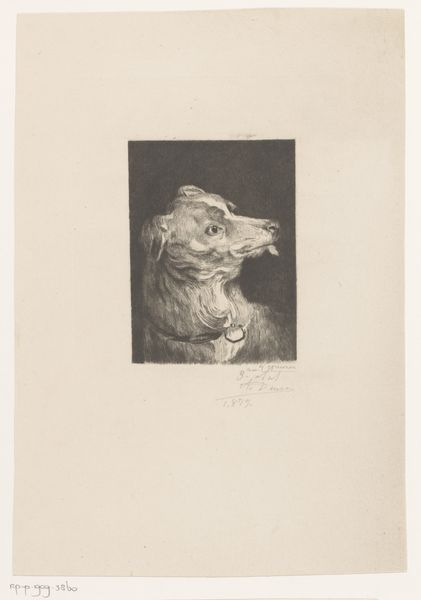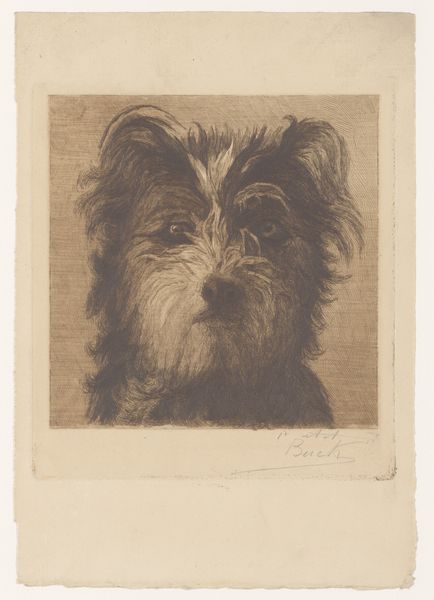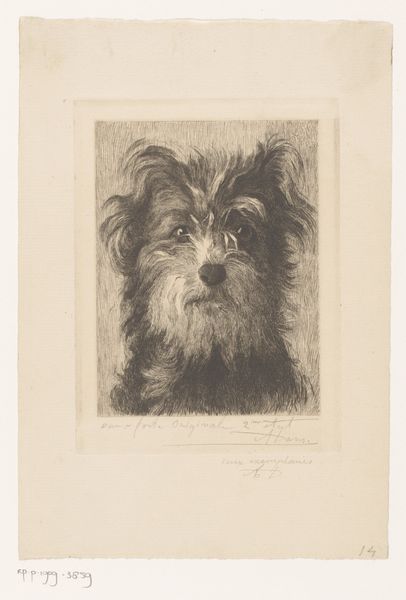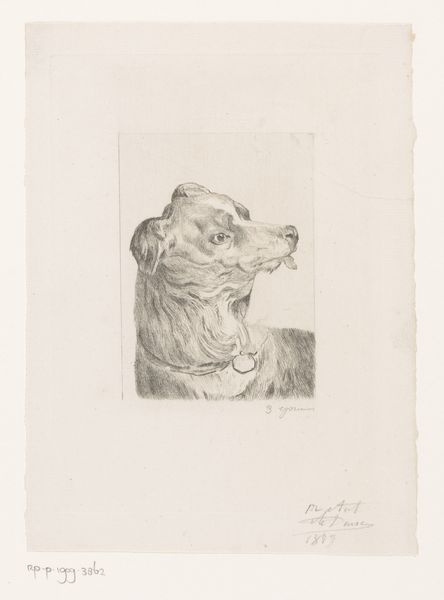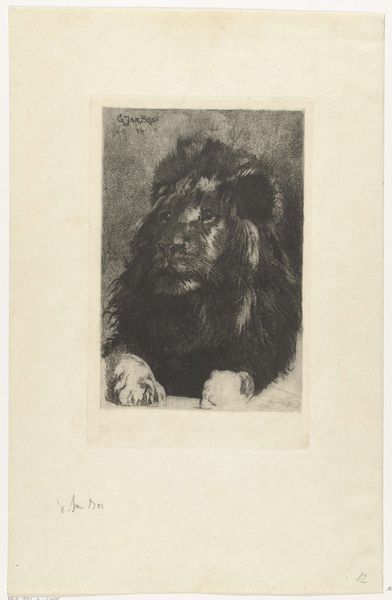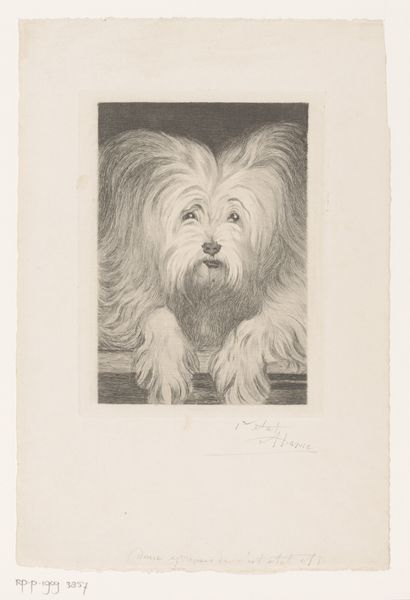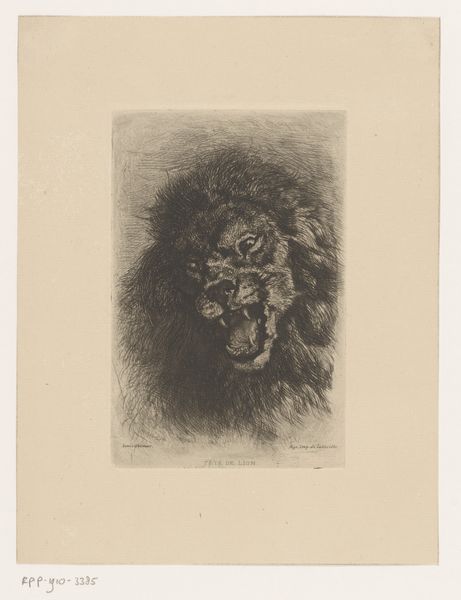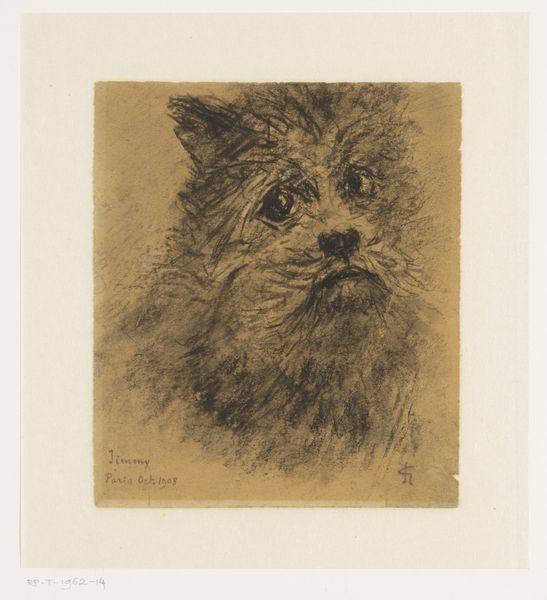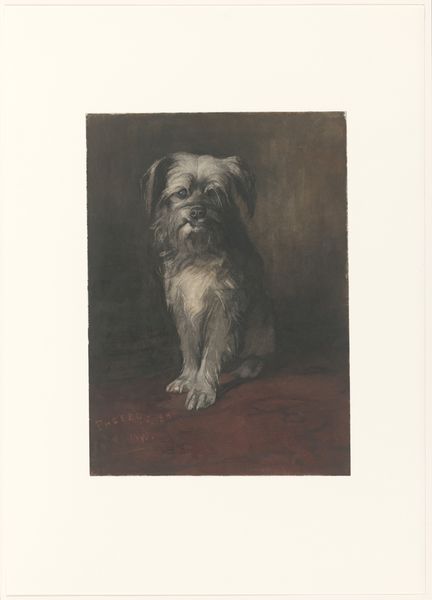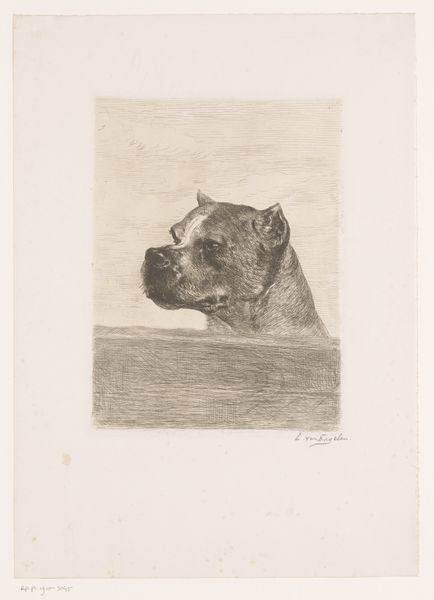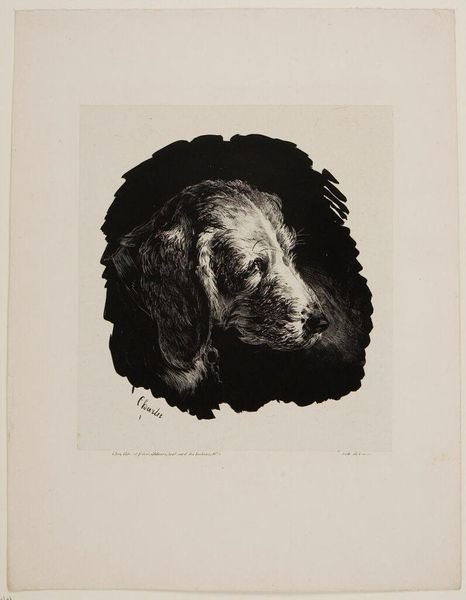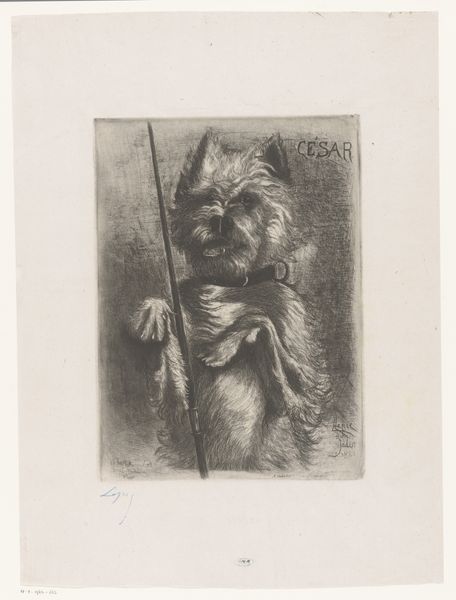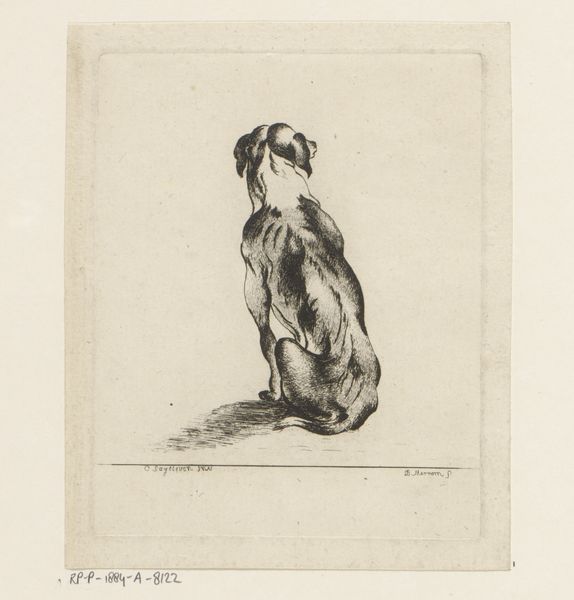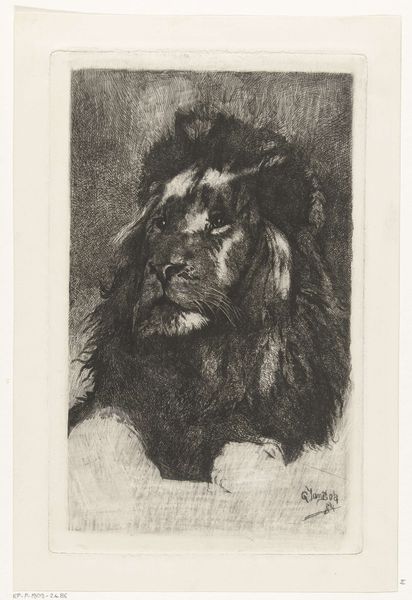
drawing, print, etching
#
portrait
#
drawing
#
animal
# print
#
impressionism
#
etching
#
dog
#
pencil drawing
#
realism
Dimensions: height 140 mm, width 100 mm
Copyright: Rijks Museum: Open Domain
Editor: Here we have "Hond Phoebus," an etching by Willem Witsen, dating to around 1884. I find the tonal range and texture to be quite intriguing. What compositional elements strike you in this piece? Curator: Note how Witsen exploits the stark contrasts achievable through etching. See the dense network of lines which define the dog’s shaggy fur, effectively creating a sense of depth despite the work's inherent two-dimensionality. Editor: The use of line is fascinating. I see a real tension between the detail in the dog's face and the relatively simple background. Curator: Observe how the artist positions the dog centrally within the rectangular format, magnifying its presence. Note, too, the slightly asymmetrical gaze, drawing us into an implied narrative, subtly animating the work. Do you notice any dynamic marks made in the medium to render the textural depth? Editor: I do. I'm starting to appreciate the controlled chaos of the etched lines. They do create a vivid sense of volume. Is there significance in the seemingly unfinished background? Curator: The figure-ground relationship is intentional. The focused detailing and carefully chosen value around the subject serves to concentrate our attention and further the animal’s importance within the frame, achieved through visual design, devoid of needing to employ a historically sentimental understanding of “pet portraiture.” What overall effect does that create, would you say? Editor: The formal qualities you’ve pointed out create a strong sense of intimacy, almost like the dog is the whole world for the viewer, and make the artwork very appealing to modern sensibilities. Curator: Exactly. And appreciating these artistic decisions makes for richer observations.
Comments
No comments
Be the first to comment and join the conversation on the ultimate creative platform.
